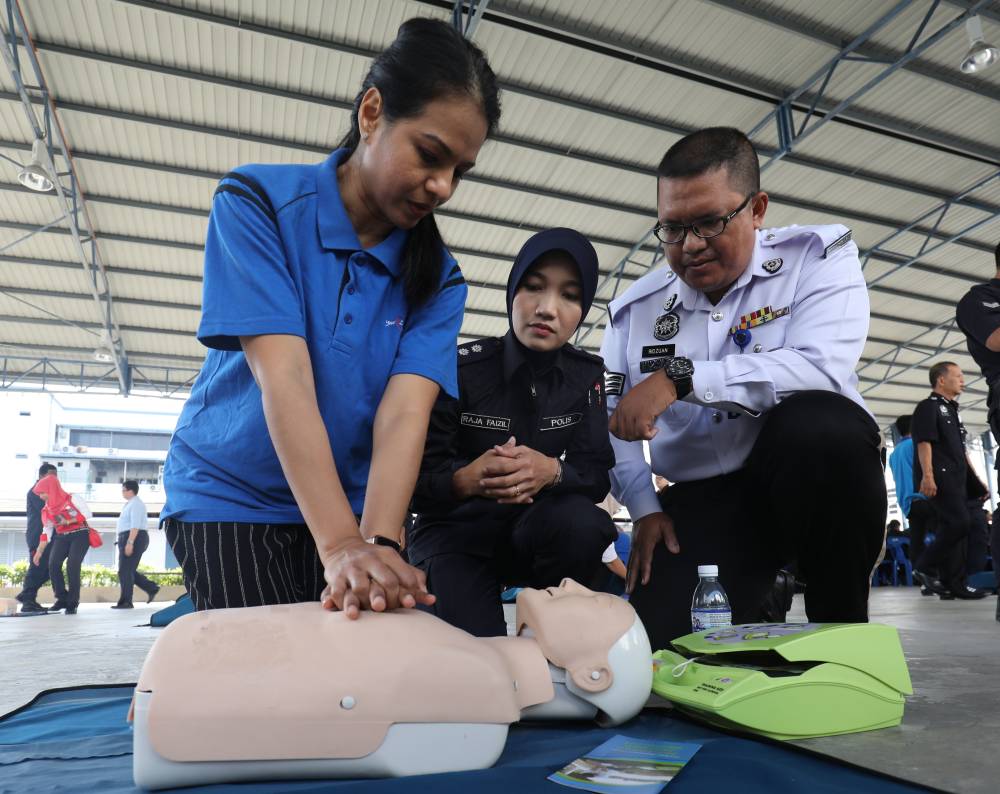Basic life support knowledge important to save lives
We are the first responders at the scene before paramedics or doctors from the hospital arrive.

KUALA LUMPUR - Basic life support (BLS), which involves providing emergency assistance through cardiopulmonary resuscitation (CPR) to those in need, is a skill that everyone should learn in order to save lives.
BLS instructor Dr Muhammad Rafiuddin Kalil said people should not underestimate the importance of this life-saving skill when faced with critical situations.
"This knowledge (basic life support) is crucial for us to learn because we are the first responders at the scene before paramedics or doctors from the hospital arrive, which may take some time.
"Emergencies can happen anywhere, and if we have the knowledge to apply to these situations, we can provide better outcomes for the patient," he said during a course session provided to members of the Malaysian National News Agency (Bernama) here recently.
Dr Muhammad Rafiuddin, who is certified by the National Heart Association of Malaysia (NHAM) said that awareness among the public about the benefits and also the need for basic life support was quite lacking in the country.
Dr. Muhammad Rafiuddin said that people were generally concerned that performing CPR, which involved pressing the patient's chest at a depth of at least 5 cm at a rate of at least 100 compressions per minute, could cause injury and worsen the patient's condition.
"When we inform family members about the need to perform chest compressions, they refuse and even say that pressing the chest can torture the patient. However, there are also those among them who want to help in times of emergency but do not know how," he said.
He said the public could learn the proper way to provide basic life support through free courses offered by various universities, government agencies, and non-governmental organisations both physically and online.
"It's not difficult to learn, and if more people acquire this knowledge, the higher the chances of saving someone's life," he said, adding that employers can also organise regular basic life support courses for their employees.
The courses cover the steps of performing CPR for adults using the DRCAB method, which involves detecting danger (Danger), assessing the patient's response (Response), performing chest compressions (Compression), opening the airway (Airway), and checking their breathing (Breathing).
Meanwhile, Dr. Muhammad Rafiuddin also advised the public to request paramedics to bring automated external defibrillator (AED) units to the scene when contacting emergency services at 999.
This is because AEDs can analyse heart rhythms and provide guidance to rescuers on how and how much shock should be administered to the patient.
The course today attended by more than 30 Bernama officers, was conducted by four instructors from Klinik Syifa, namely Dr Muhammad Rafiuddin, Dr Diyana Ahmad, Dr Nurfitri Wahdatul Amani Adam, and Dr Hanan Abd Mokhti. - BERNAMA














